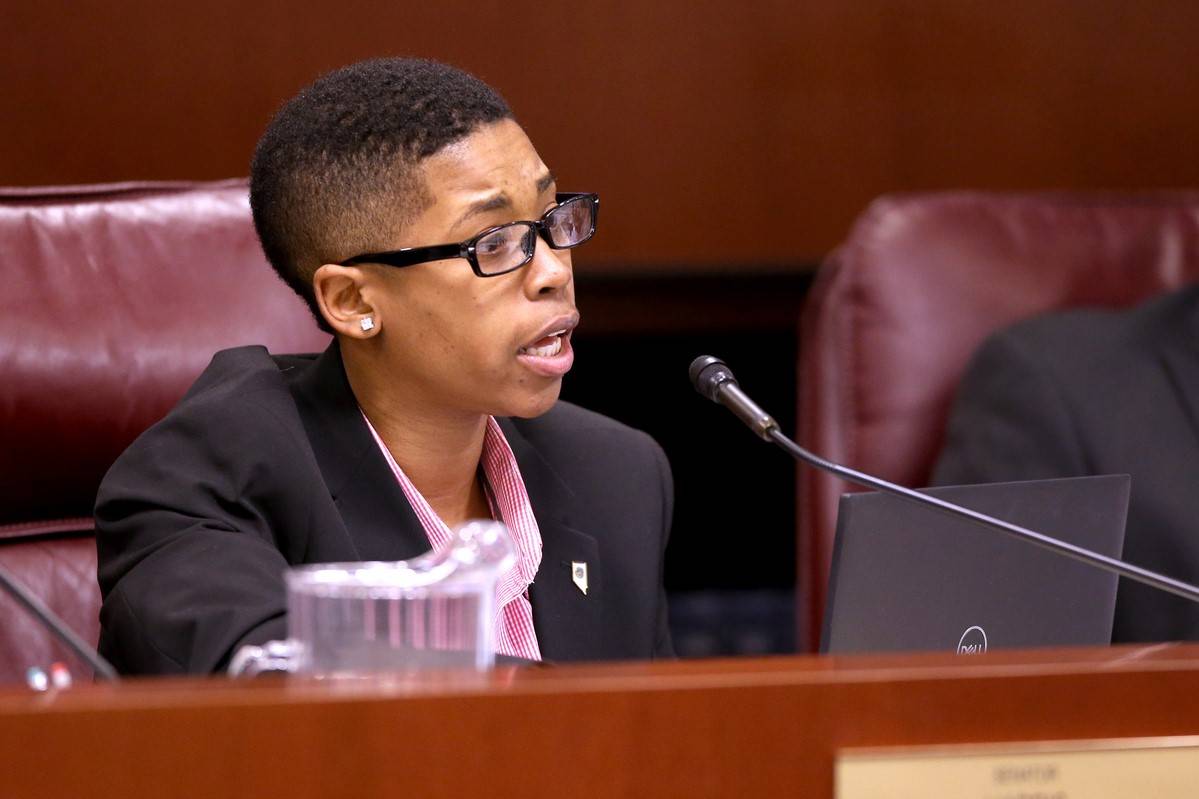Diversity lags at top of Nevada marijuana industry

CARSON CITY — People of color make up nearly half of the Nevada marijuana industry workforce, but the executive-level positions for cannabis companies skew significantly whiter, according to a new survey.
According to the survey conducted by the state’s Cannabis Compliance Board, 63 percent of marijuana license owners identified as white, compared to just 5 percent who were Black, 12.8 percent who were Hispanic or Latino, 6.3 percent who were Asian, and 2.5 percent who were American Indian or Alaskan Native. More than 10 percent answered with “Prefer not to answer.”
That racial disparity was even greater for people who serve on the executive boards or boards of directors for cannabis companies, where 77 and 74 percent of respondents identified as white, respectively.
At the employee level, which made up the bulk of the responses, 52.4 percent identified as white, compared to 21.3 percent as Hispanic or Latino, 10.8 percent as Black, 5.9 percent as Asian, and 3 percent as American Indian or Alaskan Native. Those employee-level numbers are closer to the U.S. Census population demographic projections for Nevada.
The survey also showed that while more than 40 percent of the marijuana industry is female, women hold far fewer ownership and executive positions.
The results are anything but surprising, said Sen. Dallas Harris, D-Las Vegas, who in the 2019 Legislature pushed for the demographic breakdown of the industry to be analyzed.
Harris described the survey as “doing a study to prove water is wet.”
“The numbers and the trends are exactly as we expected, that the numbers start to flip as you move down the chain,” Harris said.
Comprehensive survey
The board sent the survey to all 9,890 active marijuana agent cardholders, which are required to work in the industry, before the end of 2020. More than half of the surveys — 5,501 — were returned within the two week response time. This includes dispensaries, cultivators, producers, labs, distribution companies and affiliated marijuana companies, such as consultants. The report said that included nearly all of the people who hold executive positions, such as owners, board members or company officers.
Kema Ogden, part owner of Top Notch THC dispensary in Las Vegas, said that it’s important for the board to collect this type of data while constantly working to make the industry more diverse.
Nevada has not taken new applications for cannabis licenses since 2018, and the state has not scheduled a new application period as of yet. That leaves questions about what the board can do to address diversity issues in the interim without handing out new licenses.
Ogden, one of the few cannabis owners in the state who is both a woman and a person of color, said she’d like to see initiatives rolled out the help minorities learn about the industry, including the amount of capital that is needed to start a business and how to run them.
“Preparing people properly and guiding them properly, and allowing them to gain entry is just as important,” Ogden said.
The data gives the state a baseline to use as a gauge and measure if future programs and initiatives are working to increase diversity within the industry, said Tyler Klimas, executive director of the cannabis board.
In the near-term, Klimas said one potential avenue for increasing diversity among ownership is the potential of legalizing cannabis consumption lounges during the current Nevada Legislature. No bill on the topic has been introduced as of yet, but Klimas said he anticipates it will come up this session.
Those lounges would create a new license type that the board would be able to award, providing “a new opportunity to bring new people into the industry,” Klimas said.
Efforts to increase diversity
Going forward, Klimas said that one of his first priorities as chair of the Cannabis Advisory Commission, which will make recommendations to the cannabis board, is to create a subcommittee on social equity and inclusion. That subcommittee will look at what the board needs to do to boost diversity, such as the possibility of creating social equity licenses and a capital fund to help provide needed money.
“It’s about getting the right voices in the room to discuss these issues and lay out this framework,” Klimas said. “Representatives of the communities that have been disproportionately affected by the war on drugs over the last several decades.”
Harris, the state senator, hopes that the board uses this data to “create a race to the top for diversity.”
“The work is not done,” Harris said. “This is only the beginning, and searching for equity, not only in this space but in general, is a never-ending, relentless pursuit.”
Contact Capital Bureau Chief Colton Lochhead at clochhead@reviewjournal.com. Follow @ColtonLochhead on Twitter.